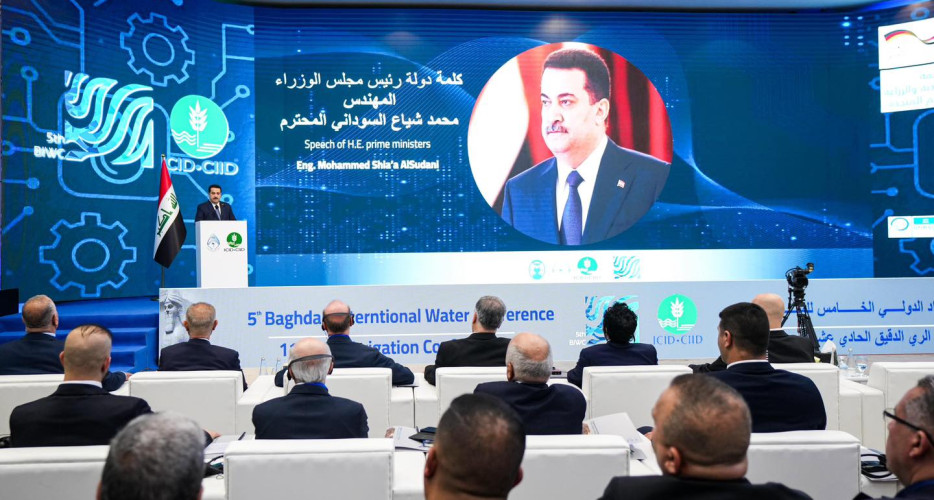
Peregraf
Faced with shrinking rivers, drying farmlands, and mounting regional tension over water rights, Iraq has unveiled a new strategy to rescue its most vital natural resource. Prime Minister Mohammed Shia’ al-Sudani on Saturday launched a sweeping national initiative titled "Our Water, Our Future", aiming to shield the historic Tigris and Euphrates rivers from the growing threats of climate change and chronic water scarcity.
Announced during the Fifth Baghdad International Water Conference, the initiative represents what Sudani described as a "comprehensive strategic step" not only to ensure the survival of Iraq’s ancient rivers, but also to lay a foundation for regional cooperation, innovation, and resilience in the face of worsening environmental pressures.
"Innovation and science are at the heart of our response," Sudani told attendees, which included international experts and regional water policymakers. "We must embrace modern solutions—from closed irrigation systems and desalination to wastewater treatment and automated dam management—to secure a sustainable water future for Iraq."
A Crisis with Regional Roots
The Tigris and Euphrates have sustained Mesopotamian civilization for millennia, but today, they are drying up. Nearly 75% of Iraq’s water originates outside its borders—primarily from Turkey and Iran—making cross-border coordination both a necessity and a challenge. While Ankara and Tehran continue to expand dam networks that restrict flow downstream, Baghdad has struggled to secure binding agreements on equitable water distribution.
Sudani’s government has pushed for new frameworks. A recent highlight came in April 2024, when the Iraqi premier signed a 10-year water cooperation pact with Turkish President Recep Tayyip Erdogan. The multi-billion-dollar deal includes joint infrastructure and management projects aimed at balancing needs across the Tigris and Euphrates basins.
Still, challenges remain. According to Torhan al-Mufti, a senior advisor to the prime minister, Iraq is among the 15 countries most vulnerable to climate change. "We lack a comprehensive agreement with our neighbors, especially Iran and Turkey," al-Mufti said in February.
A Platform for Change
Sudani's remarks at the conference pointed to a broader vision—one in which Iraq not only confronts its internal water challenges but also becomes a regional hub for cooperation. The initiative seeks to define responsibilities across ministries and communities, encourage public participation, and align national action with international water law.
Key pillars of the strategy include:
-
Scaling up modern irrigation technologies and efficient water use in agriculture.
-
Implementing automated systems for dam operations and reservoir management.
-
Investing in desalination and wastewater recycling.
-
Combating pollution through stricter regulation and awareness campaigns.
-
Promoting transboundary water diplomacy grounded in international norms.
"We recall the words of the UN Secretary-General during his visit to Iraq," Sudani noted, "that the Tigris and Euphrates are not just Iraqi rivers—they are a global concern."
From Rhetoric to Reality
The success of Iraq’s initiative may ultimately depend on its ability to turn policy into practice, and rhetoric into action. Environmental experts have long warned that Iraq’s water crisis is not just environmental—it’s political, economic, and social. Pollution, outdated infrastructure, population pressure, and climate extremes form a web of interlinked threats that demand systemic solutions.
But for now, Sudani’s government is framing the new initiative as a turning point.
"We are determined," he said, "to overcome obstacles and build lasting water security—for our people, for our development, and for a future of shared prosperity across the region."